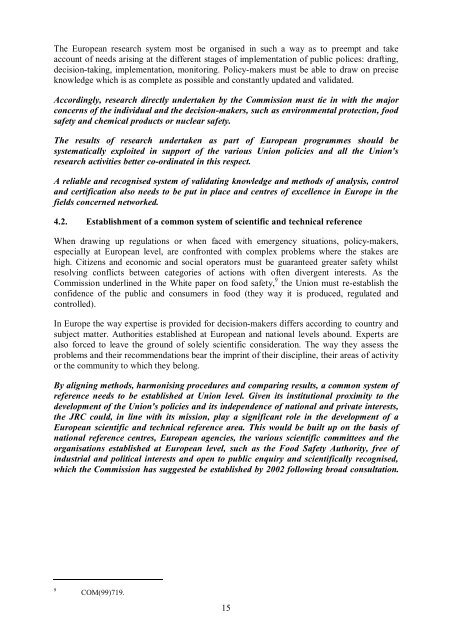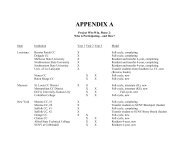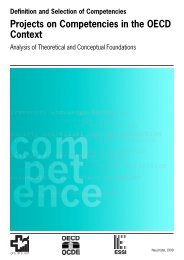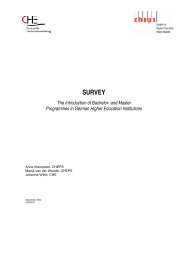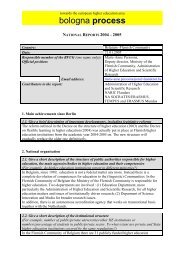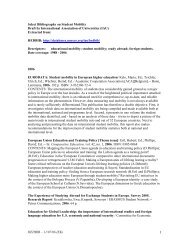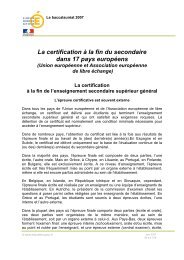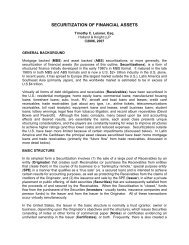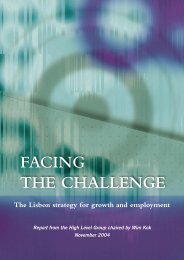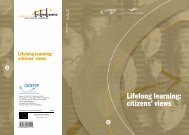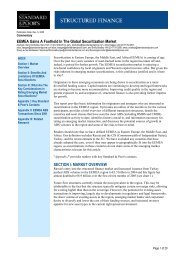(2000) 6 - EUR-Lex
(2000) 6 - EUR-Lex
(2000) 6 - EUR-Lex
Create successful ePaper yourself
Turn your PDF publications into a flip-book with our unique Google optimized e-Paper software.
The European research system most be organised in such a way as to preempt and takeaccount of needs arising at the different stages of implementation of public polices: drafting,decision-taking, implementation, monitoring. Policy-makers must be able to draw on preciseknowledge which is as complete as possible and constantly updated and validated.Accordingly, research directly undertaken by the Commission must tie in with the majorconcerns of the individual and the decision-makers, such as environmental protection, foodsafety and chemical products or nuclear safety.The results of research undertaken as part of European programmes should besystematically exploited in support of the various Union policies and all the Union'sresearch activities better co-ordinated in this respect.A reliable and recognised system of validating knowledge and methods of analysis, controland certification also needs to be put in place and centres of excellence in Europe in thefields concerned networked.4.2. Establishment of a common system of scientific and technical referenceWhen drawing up regulations or when faced with emergency situations, policy-makers,especially at European level, are confronted with complex problems where the stakes arehigh. Citizens and economic and social operators must be guaranteed greater safety whilstresolving conflicts between categories of actions with often divergent interests. As theCommission underlined in the White paper on food safety, 9 the Union must re-establish theconfidence of the public and consumers in food (they way it is produced, regulated andcontrolled).In Europe the way expertise is provided for decision-makers differs according to country andsubject matter. Authorities established at European and national levels abound. Experts arealso forced to leave the ground of solely scientific consideration. The way they assess theproblems and their recommendations bear the imprint of their discipline, their areas of activityor the community to which they belong.By aligning methods, harmonising procedures and comparing results, a common system ofreference needs to be established at Union level. Given its institutional proximity to thedevelopment of the Union's policies and its independence of national and private interests,the JRC could, in line with its mission, play a significant role in the development of aEuropean scientific and technical reference area. This would be built up on the basis ofnational reference centres, European agencies, the various scientific committees and theorganisations established at European level, such as the Food Safety Authority, free ofindustrial and political interests and open to public enquiry and scientifically recognised,which the Commission has suggested be established by 2002 following broad consultation.9COM(99)719.15


